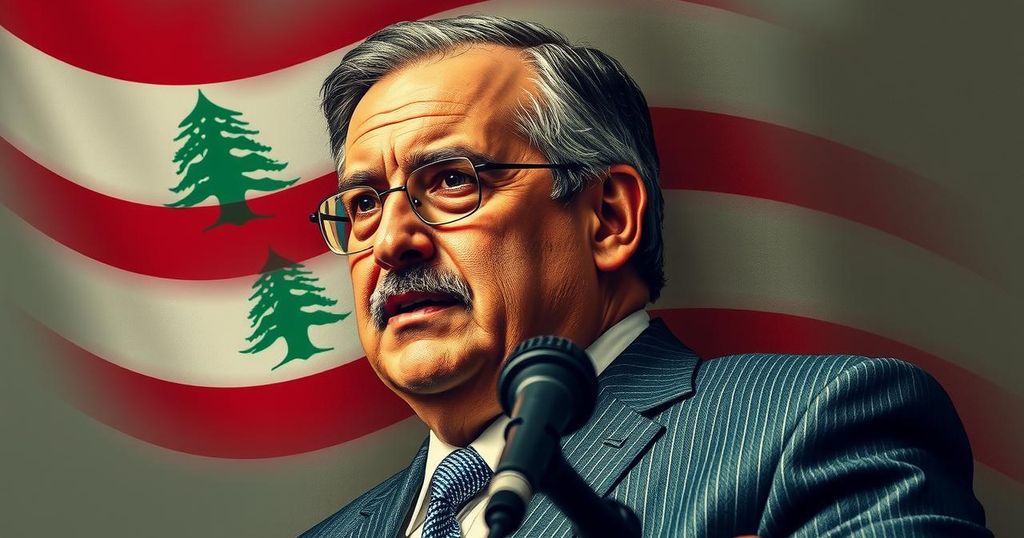Aoun’s Presidency: A Shift in Lebanon’s Political Landscape Against Hezbollah

The election of General Joseph Aoun as Lebanon’s president marks a critical shift in the political dynamic, representing a setback for Hezbollah, as they failed to secure their candidate, Suleiman Frangieh. Supported by international allies, Aoun now faces crucial tasks including establishing stability in southern Lebanon and forming a new government, while contending with the persistent influence of Hezbollah and navigating burgeoning international expectations.
Recent developments in Lebanon signify a notable shift in the political landscape following the election of General Joseph Aoun as president. His ascension to power is perceived as a setback for Hezbollah, particularly after the group failed to endorse its favored candidate, Suleiman Frangieh. Despite a protracted 26-month delay in the election process, Hezbollah’s influence diminished, culminating in Frangieh’s withdrawal in favor of General Aoun, who garners support from Western and Arab nations, including the United States.
The election of Aoun has implications not only for Hezbollah but also for Iran and its associated Shi’ite movement. Israel’s recent military successes contributed to a resolution for Lebanon’s political void, facilitating Aoun’s election. As the new president, Aoun has urgent tasks, including stabilizing ceasefires in southern Lebanon and establishing a new governing body to replace the interim administration led by Najib Mikati.
Aoun’s victory speech highlighted his commitment to addressing domestic concerns, particularly in dismantling Hezbollah’s military capacity, amidst calls from political opponents for significant reforms. Key challenges lie ahead, including curbing weapon smuggling from Syria and managing international expectations related to Israel’s withdrawal from southern Lebanon, an issue that could incite domestic unrest should delays occur. Prominent figures in Jerusalem are wary of Aoun’s election as it may amplify international demands on Israel.
Moreover, the president must navigate the complex political terrain where Hezbollah and its allies are reportedly set to occupy pivotal positions within the new government. The path forward is laden with expectation and skepticism as Lebanese citizens look toward Aoun for stability amidst a backdrop of longstanding opposition and historical turmoil.
Lebanon has historically been a region of political instability, particularly influenced by external forces and the enduring presence of Hezbollah. The recent election marked an extraordinary turning point as Hezbollah struggled to exert its influence in electing a president. The landscape of Lebanese politics has been marked by external pressures, especially from the United States and neighboring Arab nations that supported Aoun, illustrating the dynamic interplay between local factions and international diplomatic interests.
In summary, the election of General Joseph Aoun as president represents a significant development in Lebanon’s political framework, challenging Hezbollah’s influence and introducing potential opportunities for national reform. Aoun’s leadership is poised to address urgent issues, such as international relations and domestic governance, while countering the entrenched power of Hezbollah and its allies. The success of his administration will largely depend on his ability to navigate these complex challenges and enhance Lebanon’s stability in the face of considerable opposition.
Original Source: www.thejc.com








